About Publications Library Archives
heritagepost.org

Preserving Revolutionary & Civil War History

Preserving Revolutionary & Civil War History
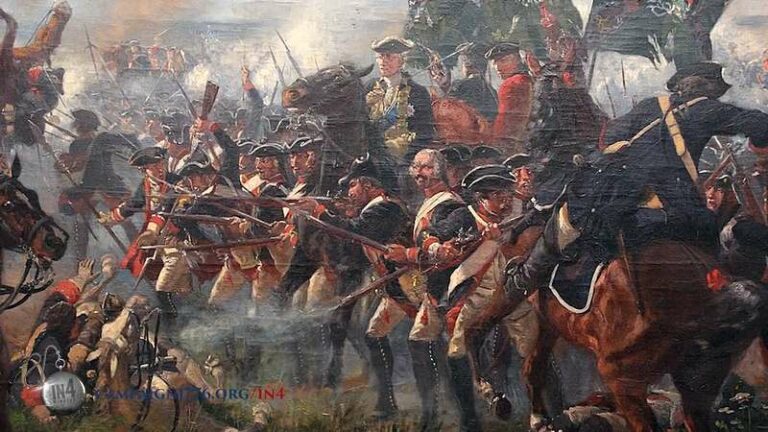
Author: Benjamin Franklin Date:1770 Annotation: As late as 1775, Benjamin Franklin (1706-1790) was convinced that the issues dividing Britain and the colonies were “a Matter of Punctilio, which Two or three reasonable People might settle in half an Hour.” But years earlier, his enemies were already trying to use their influence within the British…

Author: John Dickinson Date:1770 Annotation: The escalating conflict with Britain after 1763 forced the colonists to define their identity as well as the nature of sovereignty and authority through practical action and philosophic reflection. Republican ideology served as a way to articulate a sense of identity. Increasingly, the colonists envisioned themselves as a people…
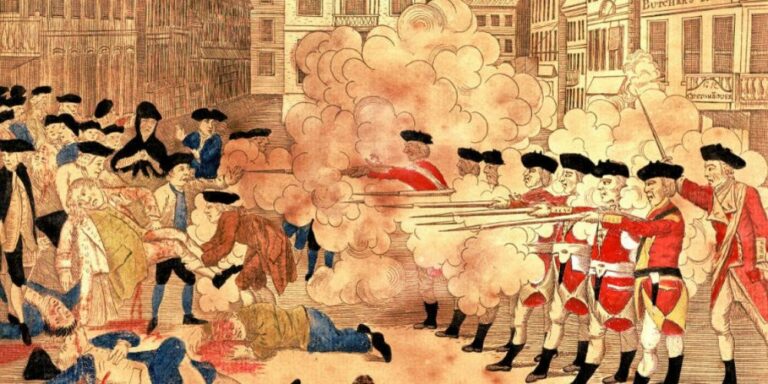
Author: Thomas Preston Date:1770 Annotation: Captain Thomas Preston’s account of the Boston Massacre. Document: It is [a] matter of too great notoriety to need any proofs that the arrival of his Majesty’s troops in Boston was extremely obnoxious to its inhabitants. They have ever used all means in their power to weaken the regiments, and to…
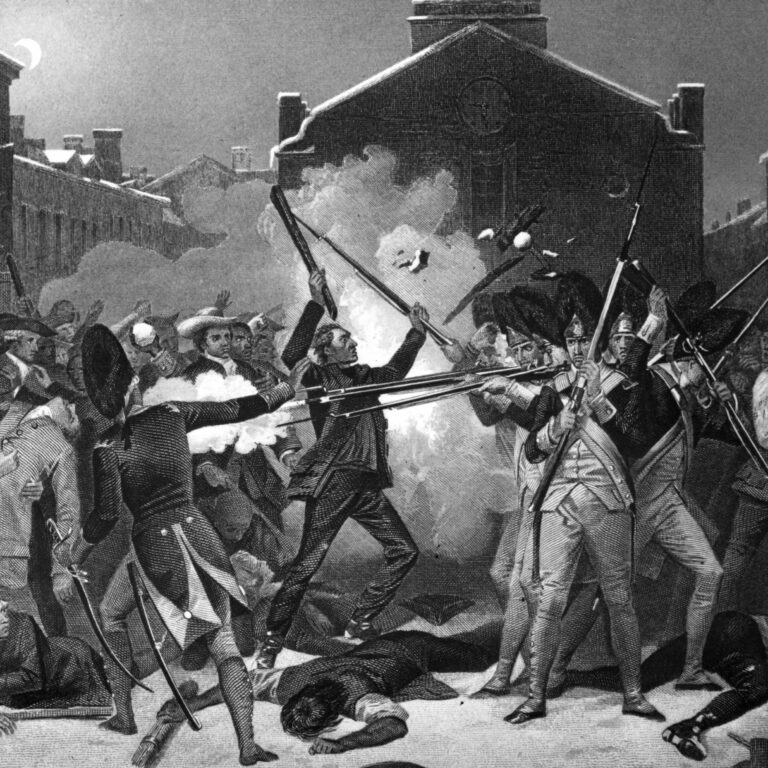
Date:1770 Annotation: The leader of the British 29th regiment, Preston was defended by John Adams for his role in the massacre and was acquitted of all charges. Document: It is [a] matter of too great notoriety to need any proofs that the arrival of his Majesty’s troops in Boston was extremely obnoxious to its inhabitants. They have…
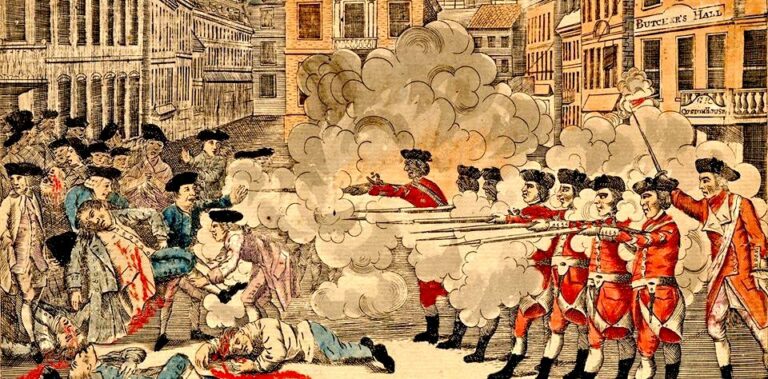
Author: Deacon John Tudor Date:1770 Annotation: By the beginning of 1770 there were four thousand British soldiers in Boston, a seaport with only 15,000 inhabitants. On the evening of March 5, crowds of day laborers, apprentices, and merchant sailors began to pelt British soldiers with snowballs and rocks. A shot rang out, and then…
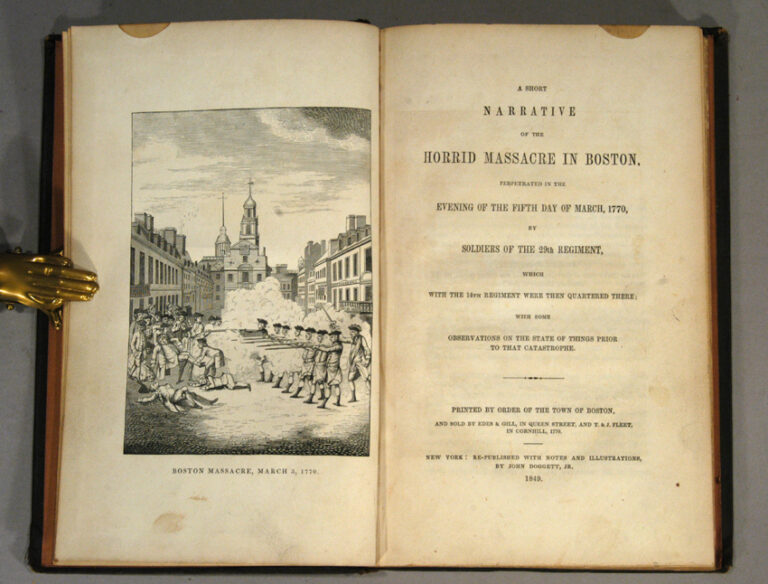
Date:1770 Annotation: An anonymous account of the Boston Massacre on the evening of March 5, 1770. Document: It may be a proper introduction to this narrative, briefly to represent the state of things for some time previous to the said Massacre; and this seems necessary in order to the forming a just idea of the causes of…
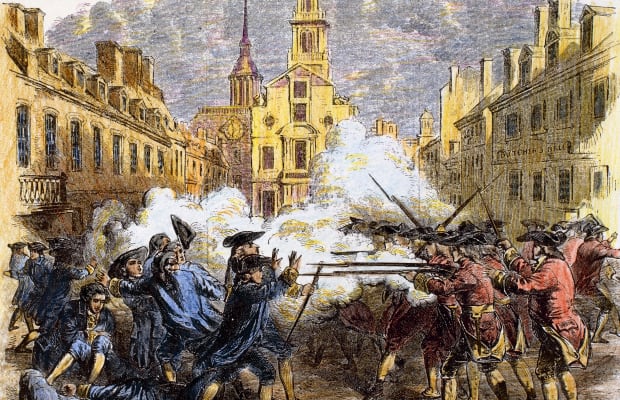
Date:1770 Annotation: On March 5, 1770, a 16-year-old barber’s apprentice named Edward Garrick insulted Hugh White, a soldier of the 29th Regiment on sentry duty in front of Boston’s Customs House. The sentry gave the apprentice a knock on the ear with the butt of his musket and a jab with his bayonet. The boy ran…
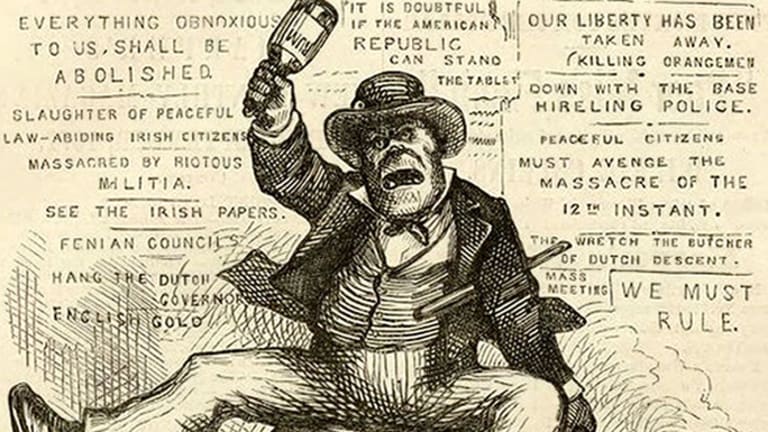
Author: Charles Thomson Date:1769 Annotation: Born in Ulster, Charles Thomson (1729-1824) came to Philadelphia as a young schoolmaster. During the 1765 Stamp Act Crisis, Thomson became a significant figure in local politics, orchestrating resistance to the measure in Philadelphia. Over the next decade, Thomson continued to be a central figure in the organization of…
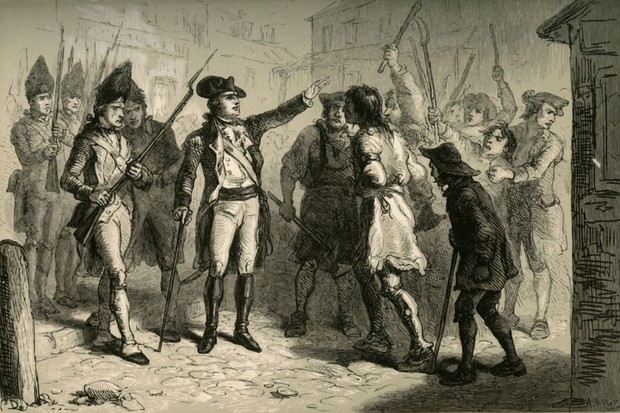
Date:1769 Annotation: The North Carolina Regulators was a popular movement in the 1760s that challenged the colonial government, the powerful landowners, and the officials that dominated its offices. The Regulators were infuriated by the rising taxes, fees, and bad land dealings that were beneficial to the affluent citizens and left many empty-handed. Herman Husband was one…
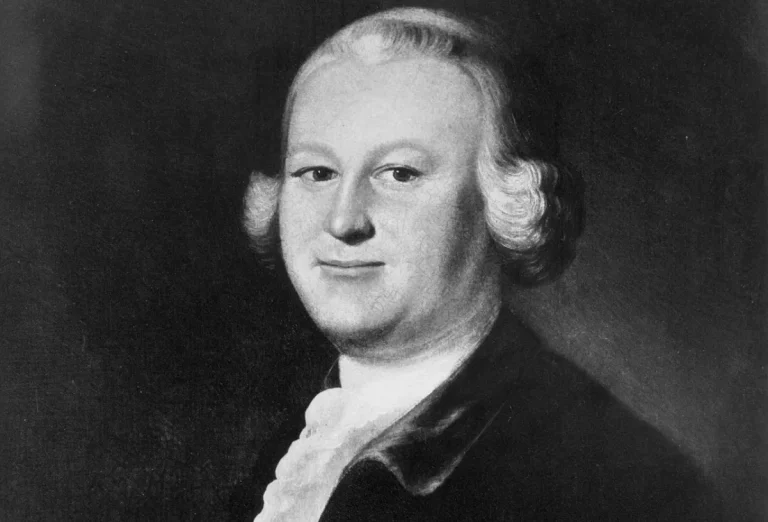
Author: John Easson Date:1769 Annotation: In this selection, James Otis (1725-1783), one of the early leaders in the colonists’ struggle for independence, informs Catharine Macaulay (1731-1791), an English liberal sympathetic to the colonies’ cause, about the situation in America. A year before he wrote this letter, Otis had rejected in outspoken terms the British…